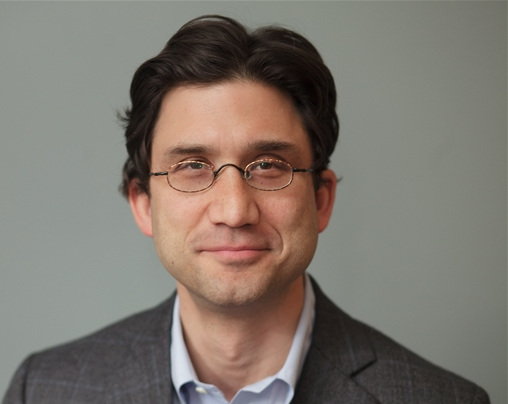 My Approach
My Approach
Psychiatry combines a number of my interests, from various aspects of the arts and literature to biology and neuroscience. Psychiatry, and psychoanalysis in particular, has the ability to uncover and effect change for those suffering from mental illness. It often empowers people to make positive change in their lives, as well as overcome and understand internal conflicts that are causing them pain and dissatisfaction. In a similar way, art and literature also touch upon themes of change and conflict, often revealing universal aspects of human suffering, as well as the psychological growth of the self. In all, these two disciplines provide important insights into the intricacies and dynamics of relationships, identity formation, self-expression, the nature and manifestation of ambition, and the diverse manners in which people choose to (or choose not to) express themselves.
Psychodynamic psychotherapy and psychoanalysis are old fashioned in some ways. They are talking cures, treatments that value the use of language and oftentimes the inability of language to articulate deeper struggles. We are constantly choosing to either express or withhold parts of ourselves. Unfortunately, failing to express ourselves, either for conscious or unconscious reasons, can be detrimental to mental health, as unexpressed thoughts, fears and desires frequently lead to emotional distress. One goal of psychodynamic psychotherapy and psychoanalysis is to bring these unconscious emotions and fantasies to the surface so that recovery can begin.
It can be tremendously therapeutic to understand oneself on a deeper level. One of my primary goals is to help people get in touch with their underrepresented, often unresolved issues and use newfound understanding to help them overcome internal conflict. In many aspects, treatment can help reframe one’s life narrative in a profound and meaningful way, which can make life much more adaptive and gratifying.
My Background
After graduating from the Mount Sinai Psychiatry Residency Program, I worked at the psychiatric emergency room at Columbia Presbyterian Hospital in New York, where I helped patients in various states of crisis, including those hampered by severe depression, suicidal thoughts, debilitating panic attacks and incapacitating withdrawal symptoms.
My experience at Presbyterian gave me an important tool as a therapist – the ability to manage a crisis, which has proven to be highly beneficial to me in my practice. My experience in the emergency room helped me grow as a clinician and effectively help patients find stability and pass through distressing physical and emotional symptoms safely, often through the use of medication. This has allowed me to assist the many patients who come to my practice during the lowest points in their lives, when they want or need immediate relief.
While in residency, I also began my psychoanalytic training at the New York University Psychoanalytic Institute, which I have since graduated from. In some ways, this training focused on the opposite clinical issues than those I encountered in the emergency room. Whereas the goal of the emergency room is to immediately stabilize and manage a crisis, psychoanalysis and psychodynamic psychotherapy aim to guide patients toward long-term change, helping them alter deep-seated patterns that can hold them back and lead to frustration and unhappiness. Psychoanalysis and psychodynamic psychotherapy (which is based on psychoanalytic principles) focus on identifying and changing ingrained character and personality issues that persist from deeper unconscious conflicts. It very frequently leads to a long-term, sustained recovery. After achieving greater self-awareness, patients come to see and experience both themselves and others in a more enjoyable, meaningful and satisfying way.
In addition to working in my private practice, I also supervise NYU psychiatric residents and post-graduate students, as well as teach a course at the NYU Psychoanalytic Institute on psychodynamic psychotherapy.
My Practice
In my practice, I have a well-rounded and collaborative approach. Having worked with diverse populations, I can help patients find both immediate relief and long-term change. As a therapist I feel that I try to meet my patients where they are and adjust my thinking and approach based on their needs, whether I think medication or a different type of psychotherapy would be most effective in treating our mutually set goals. I provide a safe, nonjudgmental, supportive environment where they are free to express uncomfortable thoughts, emotions and traumatic memories without shame or reprisal. I’m a firm believer in the power of therapy to help those who are suffering from emotional distress find relief, overcome unexpressed and unresolved issues, and achieve sustainable long-term change.
To find out more about my practice or to schedule a 15-minute phone consultation at no cost, feel free to call me at (212) 254-3145. I’d be happy to answer any question you have or discuss treatment options.
David Cole received his BS in Psychology from Tufts University, completed his MD at Albert Einstein College of Medicine and fulfilled his psychiatric residency at the Mt. Sinai Medical Center in New York City. He holds a License in Medicine and Surgery, and a Certificate in Psychiatry from the American Board of Psychiatry and Neurology. Formally he has served as a clinical instructor at Presbyterian Hospital at Columbia University (where he also worked as an attending psychiatrist) and is a current faculty member at the NYU Medical Center and at NYU Institute for Psychoanalytic Education. He’s sat on several committees at the NYU Institute and is a member of the Psychoanalytic Association of New York, American Psychoanalytic Association and American Psychiatric Association. He currently works in his private practice as a psychotherapist, psycho-pharmacologist and psychoanalyst in Manhattan, NY. David Cole can be reached at (212) 254-3145.
About Testimonials & Reviews
I do not ask for patient testimonials or reviews because I believe it can negatively affect the therapeutic relationship. The ethical codes of most mental health organizations view the rating system to be an unethical interference to the therapeutic relationship and recommend against its use. Psychodynamic psychotherapy is a very personal process that should be kept confidential and within the confines of the doctor/patient relationship.
